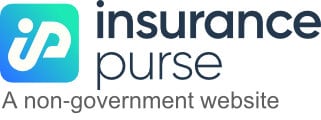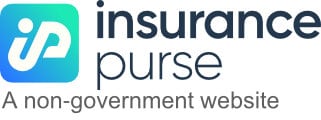Life is unpredictable, and sometimes you need quick health coverage to bridge the gap between major insurance plans. This is where Short-Term Health Insurance comes in. Designed to provide temporary coverage for unexpected situations, these plans can be a lifesaver if you’re between jobs, waiting for employer benefits, or simply looking for an affordable alternative to traditional insurance.
But is Short-Term Health Insurance the right choice for you? While it offers flexibility and lower premiums, it also comes with limitations. In this article, we’ll explore the benefits, risks, and best use cases for health plans.
What is Short-Term Health Insurance?
Short-term health insurance is a temporary medical coverage option that typically lasts from a few months to a year. These plans are designed to cover basic healthcare needs, such as doctor visits, emergency care, and some prescriptions.
Unlike traditional insurance, these plans are not required to meet Affordable Care Act (ACA) standards, meaning they often exclude coverage for pre-existing conditions, maternity care, and preventive services.
Who Might Need Short-Term Insurance?
- Individuals between jobs or waiting for employer benefits to start.
- Recent college graduates who need temporary coverage.
- People transitioning between different health plans.
- Those who missed open enrollment and need immediate protection.
While these plans provide a quick and affordable solution, they aren’t a long-term replacement for comprehensive health insurance.
The Benefits of Short-Term Health Insurance
There are several reasons why people choose these type of health insurance.
1. Affordability
Short-term health insurance typically costs less than standard ACA plans. If you’re in good health and don’t need extensive coverage, this option can be budget-friendly.
2. Quick Approval Process
Unlike traditional insurance, short-term plans don’t require long waiting periods. Many policies can be activated within 24 hours of applying.
3. Flexible Coverage Periods
Short-term policies allow you to choose coverage for a specific time frame, whether it’s one month, six months, or up to a year. This flexibility is ideal for people in transition.
4. Access to a Wide Network of Providers
Many short-term plans offer access to large provider networks, allowing you to visit doctors and hospitals without restrictions.
If you need immediate health insurance without committing to a long-term plan, Short-Term Health Insurance can be a convenient option. However, it’s important to understand the risks before making a decision.
The Risks of Short-Term Health Insurance
While short-term health insurance has its advantages, it also has some major limitations.
1. Limited Coverage
Short-term plans don’t cover essential health benefits required by ACA-compliant plans. This means you may have to pay out-of-pocket for preventive care, mental health services, and maternity coverage.
2. No Coverage for Pre-Existing Conditions
If you have a pre-existing condition, most short-term plans won’t cover treatments related to that condition. This can make it difficult for individuals with chronic health issues to get the care they need.
3. High Out-of-Pocket Costs
While premiums are lower, deductibles and copays tend to be higher. This means you could end up paying more for doctor visits and prescriptions.
4. Renewal Limitations
Many states limit the length of short-term health plans, and you may not be able to renew your policy once it expires. If you develop a health issue during your coverage period, you could have trouble getting a new plan.
Understanding these risks is crucial in deciding whether Short-Term Health Insurance is the right choice for you.
Who Should Consider ?
Short-term health insurance isn’t for everyone, but it can be beneficial in certain situations.
Best Candidates for Short-Term Plans:
✔ People in good health who need temporary coverage.
✔ Individuals transitioning between jobs or waiting for employer benefits.
✔ Those who missed open enrollment and need a temporary solution.
✔ College graduates who are no longer covered under a parent’s plan.
If you fit one of these categories, a short-term policy might be a practical option.
Alternatives to Short-Term Health Insurance
If short-term coverage isn’t the right fit, consider these alternatives:
- COBRA Insurance – If you recently left a job, COBRA allows you to keep your previous employer’s health plan for a limited time.
- Marketplace Health Plans – If you qualify for a special enrollment period, you can sign up for an ACA-compliant plan.
- Medicaid or Low-Cost Health Programs – If you meet income requirements, government programs may provide affordable or free coverage.
- Health Sharing Plans – Some organizations offer health-sharing plans as an alternative to traditional insurance.
Exploring these options can help you find the best health coverage for your situation.
Conclusion
So, is it worth it? It depends on your needs. If you’re in good health and only need temporary coverage, it can be an affordable and flexible option. However, if you have ongoing medical needs, a standard health insurance plan may be a better choice.
Before committing, compare different short-term policies, read the fine print, and make sure you understand the coverage limitations. While it’s a great short-term solution, it’s not a substitute for comprehensive health insurance.














